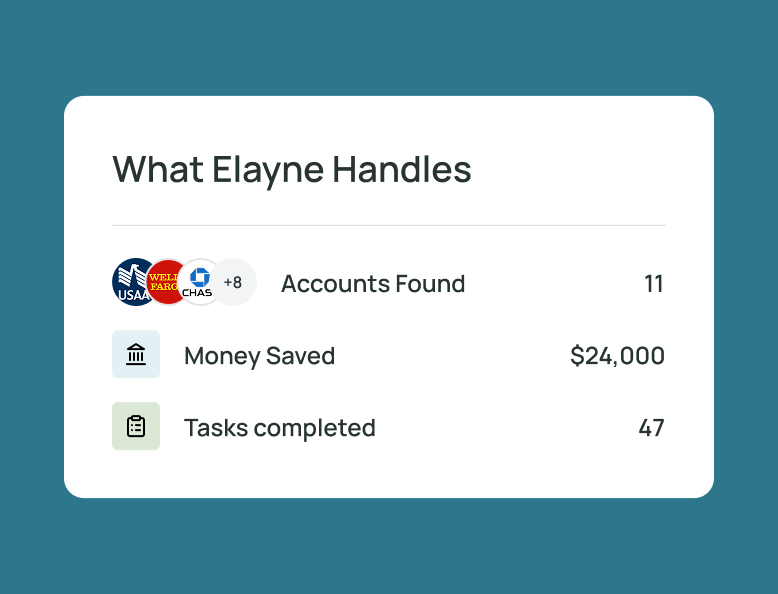Key Takeaways
- When a parent dies without a will, state intestacy laws determine how their estate is distributed.
- A court-appointed administrator (instead of an executor) will manage the estate and oversee probate.
- Assets are distributed according to a legal hierarchy, which may differ from your parent’s personal wishes.
- Debts and taxes must be addressed before remaining assets can be distributed.
- You don’t have to handle everything alone. Seeking legal guidance and emotional support can make the process more manageable.
{{blog-cta-legal}}
Introduction
Losing a parent is one of the most difficult things we’ll ever face. When there’s no will, that grief becomes even heavier because of the added uncertainty. You wonder who’ll make the decisions, how the estate will be divided, and where to even begin.
In this article, we’ll explain what happens when a parent dies without a will. We’ll cover how intestate succession works, and outline steps that can be taken to manage their estate. More than anything, we want you to feel supported and prepared as you move through each stage. With the right information and resources, you can navigate this process with more confidence and a clearer sense of direction.
1. Understanding Intestate Succession: What It Means When There’s No Will
When someone dies without a will, their estate is considered “intestate.” This means that state laws, rather than personal wishes, determine how their property and assets are divided. Every state has its own rules, but most follow a similar pattern that prioritizes close family members such as spouses, children, and parents.
For example, if your parent was married, their spouse will often inherit most or all of the estate. If your parent was unmarried but had children, those children typically share the inheritance equally. If there are no immediate family members, the estate may pass to siblings, nieces, nephews, or even more distant relatives.
One common misconception is that the state automatically claims all assets when there’s no will. This is extremely rare and only happens if no legal beneficiaries can be found.
2. First Steps After a Parent Dies Without a Will
If you’re in this situation, it feels overwhelming. However, if you have authority to act, a few immediate steps can provide structure and help you prepare for the tasks ahead:
- Get certified copies of the death certificate. Most banks, insurance companies, and courts require an official copy before they’ll release account information or process claims. It’s usually best to order 10 copies so that you have enough for the necessary paperwork.
- Collect important documents. Gather things like identification, property deeds, financial statements, tax returns, and insurance policies.
- Secure their home and belongings. If your parent lived alone, make sure their property is locked, valuables are safe, and ongoing expenses such as mortgage payments or utilities are addressed.
- Notify relevant organizations. Contact banks, insurance providers, and government agencies such as Social Security to report the death and prevent unauthorized activity.
- Identify accounts with named beneficiaries. Life insurance policies, retirement accounts, and other assets with designated beneficiaries usually transfer directly to the named individual, bypassing probate.
These steps can help you establish a solid foundation for managing your parent’s estate. They also prepare you for probate, which is usually the next major stage.
3. The Probate Process in Intestate Succession Cases
Probate is the legal process of settling a person’s estate, and it becomes especially important when there’s no will. Through probate, the court identifies beneficiaries, ensures debts and taxes are paid, and oversees the distribution of remaining assets.
The process usually begins when a family member files a petition with the probate court. Once the petition is approved, the court appoints an administrator to manage the estate. This role is similar to an executor, but it’s assigned by the court since no will exists.
Also, the timeline for probate varies. In simple cases, the process might be completed within a few months. However, if there are disputes among family members, missing paperwork, or complex assets like multiple properties or businesses, probate can take much longer.
4. Becoming the Estate Administrator
When there is no executor named in a will, the court appoints an administrator to manage the estate. Some of their duties include:
- Collecting and protecting the estate’s assets
- Paying debts, taxes, and other expenses
- Filing paperwork with the court
- Distributing the remaining assets according to state law
Courts usually give preference to close family members, such as a surviving spouse or adult children, when selecting an administrator. If multiple people want the role, or if no one seeks it, the court may decide who is most suitable or appoint a neutral third party.
If you’re named the administrator, speaking with a probate attorney can help you better understand the role and its requirements.
5. Asset Distribution: Who Inherits What in Intestate Succession
When there’s no will, assets are distributed based on state laws rather than personal wishes. This legal order of inheritance can feel impersonal, but it’s designed to create a clear and consistent process for dividing property.
- Married parents: A surviving spouse often inherits all or most of the estate, with any remaining portion divided among the children.
- Unmarried parents with children: The estate is typically divided equally among the children.
- No spouse or children: Assets may go to parents, siblings, nieces, nephews, or other extended relatives.
- Blended families or estranged relatives: These situations can be more complex, and state laws will determine how the estate is divided.
For context, not all assets go through probate. Accounts with named beneficiaries, such as retirement accounts, life insurance policies, and jointly owned property, often transfer directly to the designated individual.
6. Handling Debts and Taxes
Before any inheritance can be distributed, the estate is required to settle its outstanding debts and taxes. This helps ensure that all legal and financial obligations are addressed before assets are passed onto beneficiaries.
Common expenses and obligations include:
- Credit card balances and personal loans
- Medical or hospital bills
- Funeral or memorial expenses
- Utility or mortgage payments
- State and federal taxes for the deceased’s final year
For context, beneficiaries are generally not personally liable for a parent’s debts. However, if the estate has large financial obligations, it can significantly reduce the amount that’s ultimately distributed to beneficiaries.
7. Getting Help: Legal and Emotional Support
Having the right support can make both the legal and emotional aspects of this process more manageable. Helpful resources include:
- Estate attorneys or probate specialists who can guide you through legal requirements
- Mediation services to help resolve family disagreements
- Grief counseling or support groups to help cope with the challenges of loss
- Therapists or mental health professionals who can provide one-on-one support
- Financial advisors who can assist with managing inheritance, taxes, or estate-related financial planning
- Faith-based or community organizations that offer counseling or bereavement support
At Elayne, we know this process is about more than paperwork. It’s about finding a path forward during an incredibly difficult time. We not only provide tools, checklists, and guidance to simplify tasks, but also connect families with trusted professionals and resources like those listed above.
{{blog-cta-legal}}
FAQs
Q: Can I still inherit if I wasn’t close to my parent?
Yes. Intestate succession laws distribute assets based on legal relationships, not personal closeness.
Q: What if my parent verbally told me their wishes?
Verbal instructions aren’t legally binding. The estate will be distributed according to state laws unless there is a valid written will.
Q: Do all assets go through probate if there’s no will?
No. Accounts with named beneficiaries, jointly owned property, or certain trusts usually transfer outside probate.
Q: What if we can’t find all of my parent’s financial records?
The court-appointed administrator has the authority to contact banks, insurance companies, and employers to gather information about accounts.
Q: Can siblings or other relatives contest the estate distribution?
They can challenge aspects of the process, but courts generally follow strict state laws when no will exists.
Conclusion
Losing a parent, especially when there’s no will, is extremely difficult. However, with a clear understanding of how intestate succession works, you can take the steps needed to settle your parent’s affairs. By gathering the right documents, and leaning on both professional and emotional support, the entire process becomes a lot more manageable.
At Elayne, our mission is to make these challenges easier to navigate. From the tools we build to the professionals we partner with, we’re here to make sure that you never face an obstacle alone. Whether you’re just beginning or are well into the process of intestate succession, we’re committed to being there for you every step of the way.
*Disclaimer: This article is for informational purposes only and does not provide legal, medical, financial, or tax advice. Please consult with a licensed professional to address your specific situation.













































